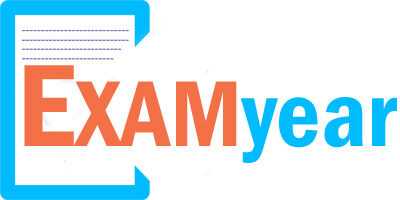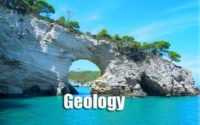Geology Mock Test
In this Article, we have provided the Geology Mock Test Papers along with Solutions. So, the interested candidates who applied for jobs in Geology can download Geology Mock Test Papers for free of cost. Get all the Geology Mock Test Papers with just one click. Click on the enclosed links below to download the Geology Mock Test Papers.

Check the Last five years Geology Mock Test Papers to get a clear idea of the exam pattern. Along with Geology Mock Test Papers, it’s better to refer Geology Syllabus & Exam Pattern before starting preparation. So, click on link to check and download Geology Mock Test Papers PDF.
Mock Test Papers on Geology
1. The term ‘lithosphere’ includes the crust and the upper part of the mantle up to a depth of
(A) 250 kilometres
(B) 150 kilometres
(C) 400 kilometres
(D) 675 kilometres
2. In the solar system, which of the following planets possesses the least density?
(A) Mercury
(B) Mars
(C) Jupiter
(D) Saturn
3. Exfoliation occurs due to
(A) running water
(B) glaciers
(C) fluctuation in temperature
(D) strong winds
4. The diameter of the earth is about
(A) 7400 kilometres
(B) 13800 kilometres
(C) 12800 kilometres
(D) 21300 kilometres
5. The element that makes up about 50% of the earth’s crust is
(A) Silicon
(B) Iron
(C) Oxygen
(D) aluminium
6. Which one of the following is fissure eruption type?
(A) Vulcanian type
(B) Icelandic type
(C) Bandaisan type
(D) Vesuvian type
7. Flat topped sea mounts are known as
(A) Mesa
(B) Guyot
(C) Inselberg
(D) monadnock
8. Siliceous deposits formed around geysers are
(A) Cinders
(B) Geyserites
(C) Scoriae
(D) pumice
9. Find the odd one out of the following :
(A) Frost heaving
(B) Oxidation
(C) Hydration
(D) Solution
10. The Himalayas rose from the primeval sea of
(A) Atlantic
(B) Tethys
(C) Caspian
(D) Arabian
11. The dip of any bed is considered as
(A) a vector quantity
(B) a scalar quantity
(C) both vector and scalar quantities
(D) a quantity whose unit is not known
12. Which one of the following is an example of a structure having quaquaversal dip?
(A) Plateau
(B) Dome
(C) Basin
(D) Horst
13. The shortening of bed takes place in case of
(A) reverse fault
(B) normal fault
(C) wrench fault
(D) strike slip fault
14. The normal fault having very low-angle dip is called
(A) detachment fault
(B) gravity fault
(C) wrench fault
(D) pivot fault
15. In NE India, Main Boundary Fault is present in
(A) Manipur
(B) Nagaland
(C) Meghalaya
(D) Arunachal Pradesh
16. If igneous rocks are unconformably overlain by younger sedimentary rocks, the resulting unconformity is known as
(A) Disconformity
(B) non-conformity
(C) angular unconformity
(D) offlap
17. A limited area of older rocks surrounded by younger rocks is called
(A) Outlier
(B) Overlap
(C) inlier
(D) offlap
18. Very closely spaced joints in rocks is known as
(A) fracture cleavage
(B) shear cleavage
(C) strain-slip cleavage
(D) crenulation cleavage
19. When stream valleys are guided by folds and are parallel to the trend of fold axes, the pattern of drainage is called
(A) Dendritic
(B) Radial
(C) Trellis
(D) annular
20. In an asymmetrical fold, the axis
(A) coincides with the crest of an anticline
(B) coincides with the trough of the syncline
(C) does not coincide with the crest of an anticline
(D) coincides with both the trough and the crest of an anticline
| Hydrogeology | Quiz |
| Practice Papers | Objective Papers |
| Mock Test | Sample Papers |
| GK | Model Questions |
| Important Questions | Previous Papers |
| MCQs |
21. Which one of the following.is not a microfossil?
(A) Radiolaria
(B) Diatom
(C) Cyprea
(D) Coccolithophore
22. A well-known gastropod shell having sinistral coiling is
(A) Oliva
(B) Physa
(C) Nenta
(D) Conus
23. Pedicle opening is present in
(A) cephalopod shell
(B) brachiopod shell
(C) gastropod shell
(D) bivalved shell
24. Cardinal teeth in Lamellibranchia is situated at which place?
(A) Below the beak
(B) At the ligament
(C) Away from the beak
(D) Cardinal teeth were not present
25. Orthis is a genus of
(A) Cephalopoda
(B) Gastropoda
(C) Trilobita
(D) Brachiopoda
26. ___ surrounds the mouth in Echinoidea.
(A) Periproct
(B) Madreporite
(C) Ambulacrum
(D) Peristome
27. The toothless form of dentition of Lamellibranchia is known as
(A) Isodont
(B) Taxodont
(C) Schizodont
(D) edentulous
28. possesses monomyarian type of adductor muscle.
(A) Lucina
(B) Unio
(C) Arca
(D) Exogyra
29. The bivalvia shells are joined together at the dorsal side by
(A) adductor muscle
(B) hinge plate
(C) ligament
(D) delthyrium
30. Which of the following is arranged properly based on the evolution of suture lines in Ammonoidea?
(A) Ammonitic, Goniatitic, Ceratitic
(B) Goniatitic, Ceratitic, Ammonitic
(C) Ceratitic, Ammonitic, Goniatitic
(D) Ammonitic, Ceratitic, Goniatitic
31. Spire is present in the class of
(A) Lamellibranchia
(B) Brachiopoda
(C) Cephalopoda
(D) Gastropoda
32. ___ has the features of both plants and animals.
(A) Alveolina
(B) Coral
(C) Euglena
(D) Foraminifera
33. Gymnosperm is a plant which
(A) exhibits no extinct varieties
(B) bears flowers
(C) does not produce seeds in cones
(D) produces seeds in cones
34. The age of Baculites is
(A) Cretaceous
(B) Tertiary
(C) Devonian
(D) Silurian
35. Cranidium of trilobites is a combination of
(A) glabella + free cheeks
(B) glabella + fixed cheeks
(C) glabella + genal angle
(D) fixed cheeks + free cheeks
36. The normal class of monoclinic system is of
(A) galena type
(B) gypsum type
(C) zircon type
(D) beryl type
37. In hexagonal system, the twins are formed according to
(A) Dauphine law
(B) Carlsbad law
(C) Pericline law
(D) Manebach law
38. Which one of the following is not galena type of a mineral?
(A) Garnet
(B) Spinel
(C) Fluorspar
(D) Rutile
39. Acrystal is a periodic arrangement of
(A) Atoms
(B) Molecules
(C) Ions
(D) both atoms and molecules
40. The phenomenon of piezoelectricity is exhibited by those crystals that lacks a
(A) symmetry axis
(B) plane of symmetry
(C) centre of symmetry
(D) pseudosymmetry
41. The Miller’s symbol for parameters Yaa : ab: c will be
(A) 201
(B) 112
(C) 012
(D) 221
42. ____ helps in determination of order of interference colour.
(A) Gypsum plate
(B) Quartz wedge
(C) Mica plate
(D) Sensitive tint
43. Dichroism is restricted to the crystal system(s) of
(A) Isometric
(B) triclinic and monoclinic
(C) tetragonal and hexagonal
(D) orthorhombic
44. Find the odd one out of the following :
(A) Flint
(B) Chalcedony
(C) Anorthite
(D) Opal
45. Find the odd one out of the following :
(A) Grossular
(B) Spessartite
(C) Almandine
(D) Lepidolite
46. ____ can be used in the preparation of artificial polarizer.
(A) Quinine calcium sulphate
(B) Lead sulphate
(C) Mixture of lead and iodine
(D) Quinine iodine sulphate
47. The chemical composition of sillimanite is
(A) Al2O3, SiO2
(B) Al2O3 SiO2 -2H2O
(C) Al2O3 -2H20
(D) Al2O3 -4H2O
48. A biaxial mineral is positive if
(A) X is acute bisectrix
(B) Z is acute bisectrix
(C) Y is acute bisectrix
(D) Z is obtuse bisectrix
49. The highest interference colour is produced in a thin section which is
(A) parallel to the optic axis
(B) perpendicular to the optic axis
(C) at an angle of 15° from the cleavage direction
(D) at an angle of 45° from the vibration direction
50. Which one of the following is a non-pleochroic mineral?
(A) Biotite
(B) Muscovite
(C) Hypersthene
(D) Garnet

